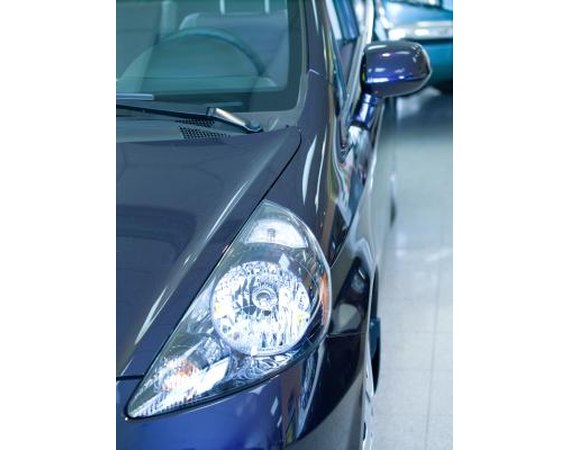
Someone might file bankruptcy for many reasons. A common concern among filers is the ability to reestablish credit after the bankruptcy is discharged. Credit is obtainable after a discharged Chapter 7 or Chapter 13 bankruptcy, particularly for auto financing. You should keep some things in mind before attempting to acquire a car loan after bankruptcy.
Time
The longer it has been since your bankruptcy discharge, the easier it will be to obtain financing. This only holds true if you have made an effort to rebuild credit and have responsibly used any new credit. One way to reestablish credit before attempting to obtain a vehicle is to get a secured credit card through your bank or credit union and maintain a low balance, with on-time payments. Also keep in mind that a Chapter 7 bankruptcy is discharged within months of filing, while a Chapter 13 bankruptcy isn't discharged until all the payments are made--usually three to five years later. However, some auto lenders will provide loans to those with an open Chapter 13 case, provided the bankruptcy trustee approves, and the borrower meets the lender's requirements.
Money
Be prepared to have a substantial down payment, particularly if you are trying to obtain a vehicle within a short time from discharge. Some lenders might want up to 30 percent down. Some dealerships selling older, possibly less-reliable, vehicles might accept a smaller down, such as $1,000. This might be in conjunction with an in-house financing program, where the dealership carries the note. Also shop for a vehicle in your budget. Ideally, your payments should be less than 15 percent of your monthly income to increase your chances of approval. After reestablishing credit for a longer period of time, you will require less of a down payment, and a zero-down loan might eventually be a possibility.
Interest
Expect to pay a higher interest rate than you did before bankruptcy. According to Michael Doan of the Bankruptcy Law Network, some borrowers might find rates as low as 8.99 percent, but around 15 percent is more typical. Some in-house-financing dealers might have much higher rates. A credit union might offer you a lower interest rate, but this is usually only possible for customers with an established banking relationship who have made strides toward rebuilding credit.
Considerations
You will likely find it easier to get financing for a late model used car than a new car. This will probably save you a good chunk of money in interest and depreciation as well. If you had bad credit for a long time before filing for bankruptcy, you might find it's easier to buy a car with a discharged bankruptcy than it was with charge-offs and open, unpaid collections. The reason is lenders know you have recently filed bankruptcy and won't be able to file for up to eight years from the discharge date and also realize you are less likely to default after clearing away all your previous bad debt.






0 comments:
Post a Comment